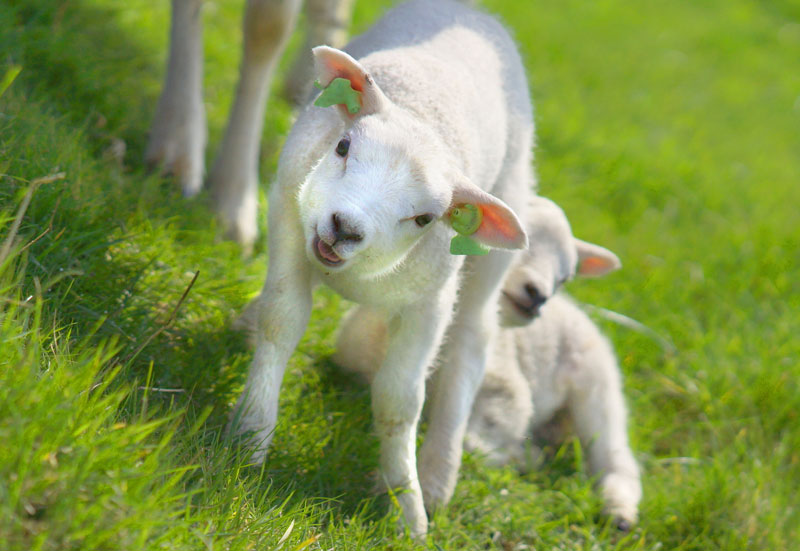
Scientists have discovered the reason why lambs are born in springtime - because flocks of sheep get frisky on long, dark winter nights.
A study, led by academics at the Universities of Nottingham and Bristol, has shown that the long cold nights cause sheep to create the hormone melatonin in the pineal gland in their brains.
This change inside the brains is the reason that rams and ewes become horny in the wintertime and is the first physical link discovered between animal fertility and the seasons, the study published in the National Academy of Sciences (PNAS) journal reports.
The study may also reveal why melatonin affects horn growth and coat thickness – and allow farmers to change the timing of lambing season.
Joint senior author David Bates, professor of oncology in the School of Medicine at The University of Nottingham, said: "Changes during the year in sex hormones made in the pituitary gland control when mammals start reproducing, and other changes like growing new coats or developing antlers.
"The length of the day is recognised in most vertebrate animals by the pineal gland in the brain, which produces melatonin. However, until now, it has not been known how melatonin, which is produced at night, signals to the area of the pituitary gland that controls sex hormones."
The revelation, says Bates, could help farmers. “As climate change occurs and you start to get harsher winters, for instance, you might want to delay the breeding so the lambs are born slightly later,” he said. “So you might be able to actually increase survival of the lambs.”
The search for the missing link between the different parts of the pituitary has been going on for nearly 30 years, because knowing how this works could, for instance, help control when sheep start lambing, enabling farmers to respond to climate change.
